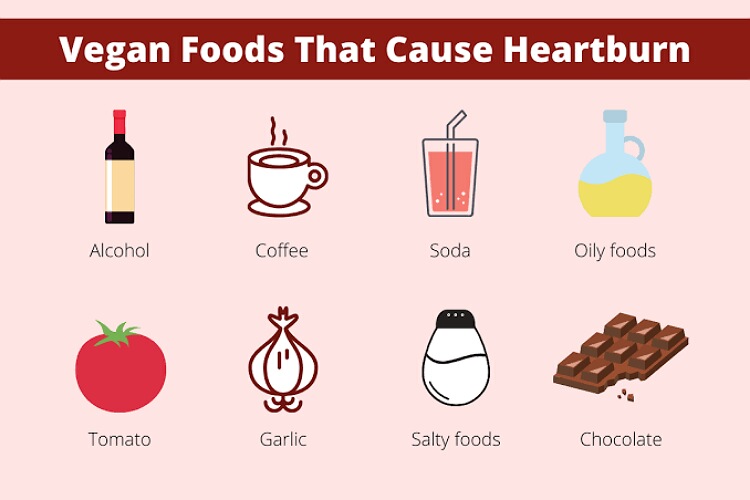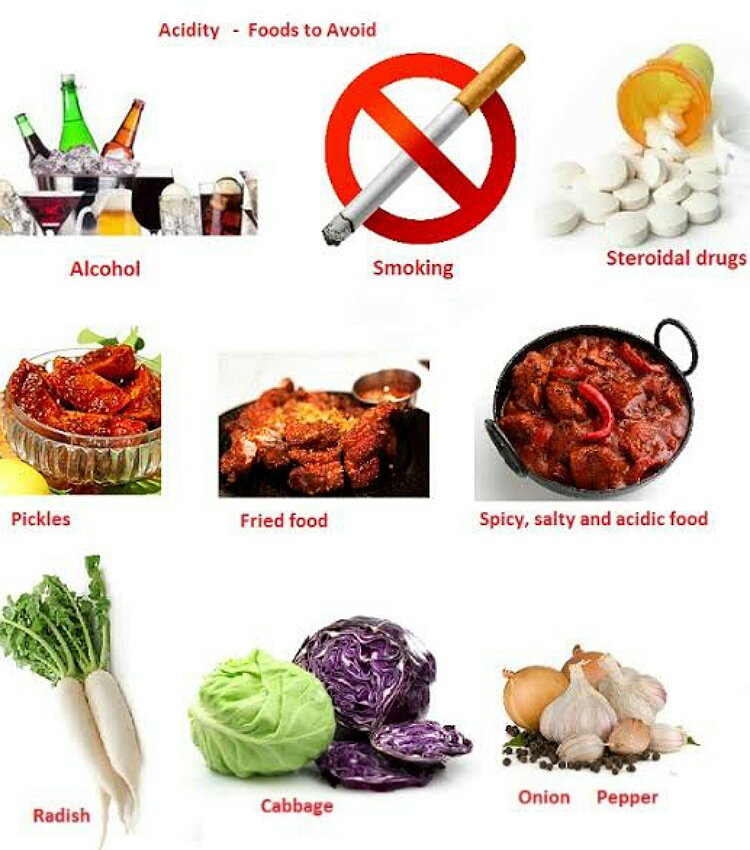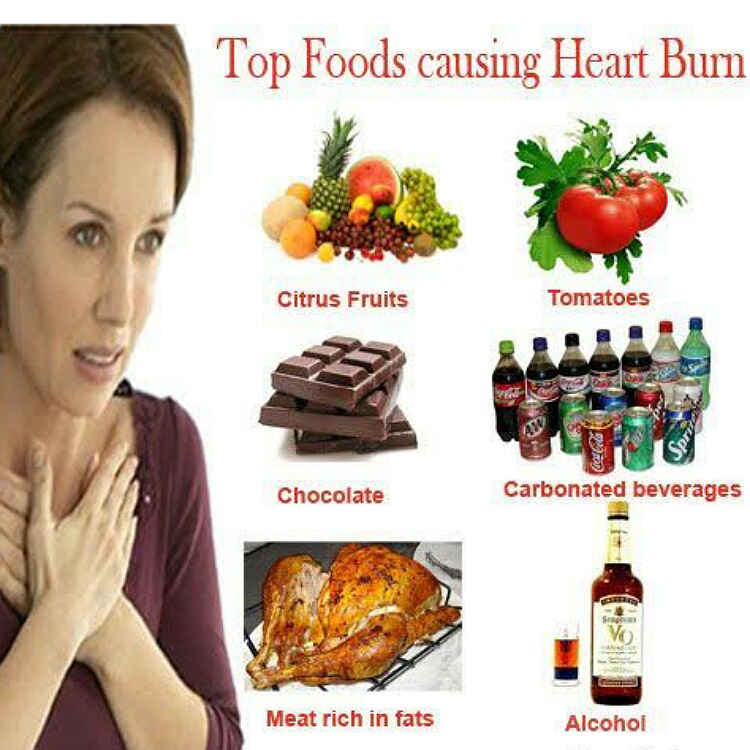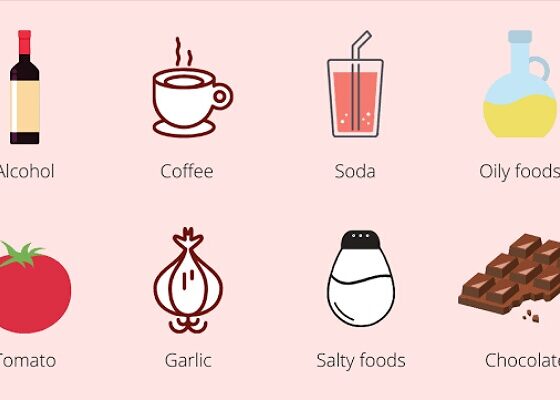Heartburn is a common complaint in the population. Certain foods aggravate this condition. Which foods should one avoid in order to overcome this ailment?
Heartburn: causes
Heartburn is a burning sensation felt behind the sternum bone in the chest area. Besides burning, some people may also experience nausea, retching and vomiting. There is water brash, which means bringing out watery gastric juice and stomach contents in the throat area. This can get aspirated and lead to chemical pneumonitis.
Furthermore, some patients also get bloating, gas, abdominal discomfort, and belching. Some get these symptoms only when they consume hot and highly spicy foods. These include red chillies, green chillies, spicy noodles, etc.

Some also experience the heartburn when they take sour foods such as tangy mangoes, soda drinks, carbonated waters etc. The problem might be acute and intermittent. And avoiding the triggering foods or consuming antacids help in symptoms relief.
Stress can also aggravate these burning symptoms. Improving lifestyle, reducing stress, and open air walks and meditation help overcome these issues. Medicines might help in overcoming the burning sensation.
Gastroesophageal reflux or GER
Around 20% of patients with heartburns have gastroesophageal reflux disease or GERD. In these cases, symptoms are chronic and long-term.
Normally, at the lower end of the esophagus (tube connecting throat to stomach), at the entry point into the stomach, there is a muscular area called the lower esophageal sphincter. This sphincter acts like a one way valve. It opens when food has to pass from the esophagus and enter the stomach. And after that it closes and prevents any acidic stomach contents from ascending into the esophagus. Thus it saves the esophagus from the action of the acid on it.

However, in people with GERD, this sphincter gets lax. It becomes loose to the extent to allow acidic stomach contents to enter the lower esophagus. The acid acts on the esophagus and causes mucosal damage and heart burn symptoms. These symptoms are chronic and frequent. Medicines help but cannot be effective without change in diet. Certain foods should be avoided to treat this condition. Ekta Gupta, gastroenterologist with Johns Hopkins Medicine states:
“Diet plays a major role in controlling acid reflux symptoms and is the first line of therapy used for people with GERD,”
Foods to avoid in GERD
Certain foods increase the secretion of gastric juice due to their chemical nature. And they might also relax the lower esophageal sphincter and make symptoms worse. These include highly fatty, salty, sour, and spicy foods.
The worst foods in this category are French fries, other fried food items, most fast foods, pizzas, potato chips, savoury snacks, chili powder, red and green whole chilies, pepper (black, white, and cayenne), fatty meats such as sausages and bacon, and cheese.

Read here: Gastritis: foods to eat and foods to avoid!
Besides these, tomato containing sauces, citrus fruits, sour foods, peppermint, chocolates, and carbonated beverages aggravate the problem. Patients of GERD should avoid these aggravating foods.
Ekta explains on it:
“Moderation is key since many people may not be able to or want to completely eliminate these foods,”
“But try to avoid eating problem foods late in the evening closer to bedtime, so they’re not sitting in your stomach and then coming up your esophagus when you lay down at night. It’s also a good idea to eat small frequent meals instead of bigger, heavier meals and avoid late-night dinners and bedtime snacks.”
